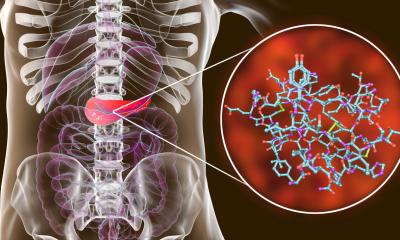Arsenic pollution causes health disaster
Over 70 million people in Southern Asia ingest involuntary arsenic through the groundwater. Arsenic poisoning is the reason for many instances of ill-health, including a rising number of cancer cases. Researchers from Belfast invented a low-cost technology to provide people with arsenic-free water.

It is estimated that for every random sample of 100 people in the Bengal Delta, at least one person will be near death as a result of arsenic poisoning, while five in 100 will be experiencing other symptoms from consuming water and rice; the main staple food in the region. This includes farmers who have to use contaminated groundwater from minor irrigation schemes. Now, researchers have created new low-cost technology to provide arsenic-free water to millions of people in South Asia currently exposed to high levels of the poison in groundwater.
Arsenic, a semi-metallic compound that has typically been deposited in silt on riverbanks, has steadily begun leaching into the groundwater over the past 3 - 4 decades as intensive farming and fertilizer use have become more common. Once underground, the arsenic, bound to minerals found in the silt, is used by bacteria as a source of oxygen -- causing it to become dissolved.
Leading an international team, the researchers have developed a trial plant in Kasimpore, near Calcutta, which offers chemical-free groundwater treatment technology to rural communities for all their drinking and farming needs.
Dr Bhaskar Sen Gupta of Queen's, co-ordinator of the project said: "Developing a low cost method of decontaminating ground water that is laced with high levels of arsenic is a key challenge for sustainable agriculture there.”
The technology is based on recharging a part of the groundwater, after aeration, into a subterranean aquifer (permeable rock) able to hold water. Increased levels of oxygen in the groundwater slow down the arsenic release from the soil. At higher dissolved oxygen levels, soil micro organisms, as well as iron and manganese, reduce the dissolved arsenic level significantly.
"While there are some techniques available for treating relatively small quantities of water, there has, until now, been no viable technology available for decontaminating groundwater on a large scale that can ensure safe irrigation and potable water supply.
"This project developed by Queen's is the only method which is eco-friendly, easy to use and deliverable to the rural community user at an affordable cost."
The project is part of the EU-funded Asia Pro Eco Programme which is dedicated to the improvement of environmental performance in Asian economic sectors. Known as TiPOT (Technology for in-situ treatment of groundwater for potable and irrigation purposes), a key part of the project is the establishment of sustainable technology partnerships.
Explaining further, Dr Sen Gupta said: "From its inception we have had the vital support of Indian-based stakeholders, such as village councils and local financial institutions. This has been vital as they are the authorities who monitor the water supply and distribution in rural areas and provide micro-credit to the local farmers.
"With their help, we now have a solution which is transferable to many areas in need across Asia."
The new plant will be maintained and operated by local village technicians. To help apply the technology to other areas in the South Asian region, the World Bank has given a grant of $200,000 to the TIPOT consortium to set up six more subterranean water treatment plants in the Gangetic plains of West Bengal.
Further information on the project can be found at http://www.qub.ac.uk/sites/TiPOT/
(Pictures: Queen's University Belfast)
05.09.2008






